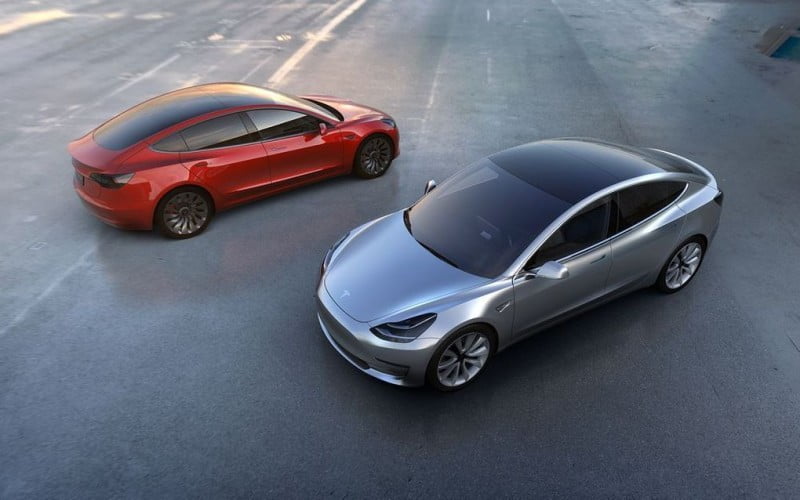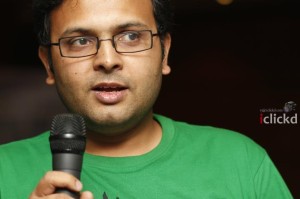Disclaimer: I’m in no way an auto expert, neither do I know a lot about Indian import system. Over the last couple of days I managed to read some stuff about Tesla’s plans for India and had some meaningful conversations about the same on Twitter. This is just a summary of things as I understand.
Elon Musk and Tesla unveiled the Model 3 – the “revolutionary” and “affordable” electric car which promises to deliver at least 215 miles of range beginning at “just” $35,000. If you were living in a cave and don’t know much about the Tesla Model 3, you can read more about that here. The point of article is not to discuss how good the car is, or why people are queuing up (quite literally) to place a pre-order for something whose production is expected to start late-2017, but to talk about something which has dominated my Twitter timeline for the past two days.
Adding several more countries to Model 3 order page tonight. Check for details, but will include India, Brazil, SA, SK, NZ, Sing & Ireland.
— Elon Musk (@elonmusk) March 31, 2016
In a surprising move, Elon Musk announced that Indians can pre-order the Tesla Model 3 by paying $1000 as advance (just like other people around the world). Many people have went ahead and ‘booked’ the Model 3 without really knowing how much it’d end up costing in India. Few points to ponder:
1. Someone on Reddit estimated it to cost over Rs 70 lakh. Below is his calculation.
2. Many media publications and Twitter celebrities are taking this at face value and crying out loud against “foolish rich” Indians who have booked the Model 3 assuming it’d cost $35000 (~Rs 23 lakh) or a little above that considering the taxes.
3. But the calculation is assuming that Tesla Model 3 will be CBU (Completely Built Unit) import. But it might well be CKD (Completely Knocked Down) import which will drastically reduce the import costs.
6/ Cars imported in Complete knockdown kit attract lower BCD ~20% for electric cars this is ~10%. Then you assemble them in India and sell.
— kuldeep (@ku1deep) April 1, 2016
Of course, going CKD route is not at all easy. But then, Tesla cars usually have extremely few components to break down, thanks to their intrinsic design. Kuldeep makes a solid point again.
7/ Normally I would imagine CKD route would be tough for cars but given the component count for Tesla cars is super low. it is feasible.
— kuldeep (@ku1deep) April 1, 2016
4. That’s logical. But is Tesla serious enough about India and their opportunity here? Yes, I think so. One, Elon Musk had mentioned his desire to set up Gigafactory (battery plant) in India late last year. Two, Indian PM, Narendra Modi met with Elon Musk around same time and invited Tesla to be part of India’s mega plan to be a hub for renewable energy. Three, although Tesla added several new countries in its pre-order page, Elon Musk specifically mentioned India. More than anything else, he promised nation wide Supercharger network. They wouldn’t be spending heavily on infrastructure setup unless they have big plans for India.
@IndiaToday Will include India-wide Supercharger network
— Elon Musk (@elonmusk) April 1, 2016
5. Now, here is why CBU import doesn’t make sense. Unless they have plans to sell Model 3 in good numbers, there’s no incentive for Tesla to invest heavily on Supercharger network. If they plan to sell in good numbers, they should logically be taking the CKD route just like BMW, Mercedes, Audi and other luxury car companies.
6. Indian government is seriously pushing for e-vehicles in the country. Piyush Goyal, the Power Minister has recently said that India will aim to become a 100% e-vehicle nation by 2030. The expectation for some government subsidy isn’t far fetched.
9/ I would not be surprised if Tesla swings some nice subsidy deal with the govt. under "make in India" and makes these even cheaper.
— kuldeep (@ku1deep) April 1, 2016
7. Considering these points, the Tesla Model 3 might cost anywhere between 25 Lakh and 35 Lakh in India. Of course, many of these are based on assumptions, but I believe they are reasoned enough based on how the high end car business work in India.
But then, there are more variables than constants here.
- We don’t know if rupee stays as strong (or weak) as it is now against USD when the actual delivery begins.
- Political scenario in India can be really volatile. How’ll be the environment at that time, no one knows.
- Tesla hasn’t clarified if they will be modifying the Model 3 for Indian road conditions which are unique in their own ways.
8. The prebook confirmation email from Tesla states that “North American deliveries will be first, followed by Europe, Asia and Pacific countries then countries with right-hand drive configurations.” This puts India in virtually the last set of countries getting the Model 3. Looking at the number of pre-orders elsewhere and past track record of Tesla, I won’t be surprised if the deliveries start beyond 2019 and in 2020 for India.
9. If any of the above assumption turns out to be false and/or things turn for worse, people pre-booking Tesla Model 3 might still not regret their decision for one simple reason.
Something I've been reminding a lot of people since yesterday https://t.co/mUYdwLhRN7
— Raju PP (@rajupp) April 2, 2016




 Tech Blogger. Ex-developer. Cricket lover. Founder,
Tech Blogger. Ex-developer. Cricket lover. Founder,
You’ve made some solid points here, and I believe CKD route is what Tesla have to take, even if government doesn’t support them as much as we believe. And the pricing up to 30 Lakhs should be welcomed by many who are planning to buy traditional cars in that range, considering they will be one of the first owners of such car in India, even just for the show off value.